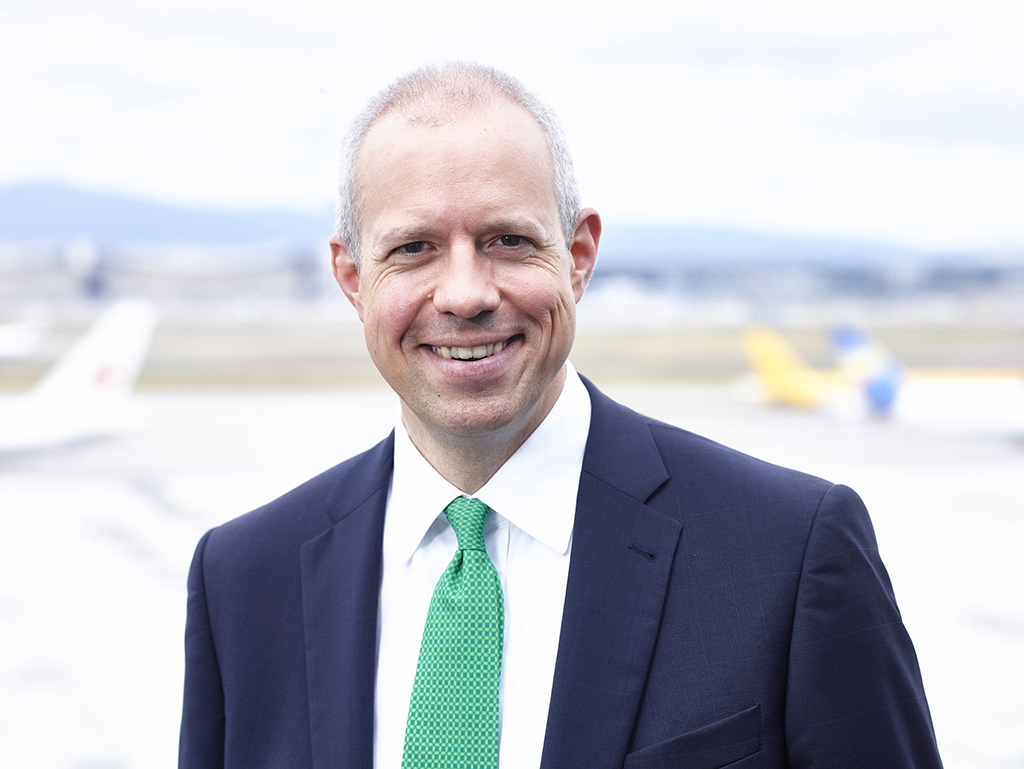LUG aircargo handling looks to an uncertain 2021
29 / 12 / 2020

In this contributed article, Patrik Tschirch (PT), chief executive, LUG aircargo handling, provides an outlook for the year ahead.
What are your expectations for 2021 with respect to air cargo volumes – in Europe/Germany/Frankfurt?
PT: That is a difficult question. There are so many uncertainties. When is the pandemic going to end? When are we going to have belly cargo capacity again? How fast are the economies in Europe going to recover? My guess is that volumes in 2021 will be at a similar level to 2020. The trend to globalisation has not reversed.
In the first 11 months of 2020 Frankfurt Airport handled 1.8m tons of cargo, 9.8% less compared to the same period of last year. Landings were down to a third. At other German airports such as Munich, Hamburg, Stuttgart, Hannover etc. the decline has been much steeper, however.
At LUG in Frankfurt, we have been busy since the beginning of the pandemic. We do our best to uphold supply chains and ensure the delivery of pharmaceutical products and medical protective equipment, nationally and internationally.
Do you expect the vaccine shipments and vaccination campaigns that have started around the globe to make a difference?
PT: No, I don’t think that vaccine shipments will be able to compensate the fall in exports of automotive, high-tech, machinery parts etc. In fact, they will accentuate the volatility of cargo volumes. That is always a problem for cargo handlers as it makes it difficult to keep a grip on costs.
Will the air cargo industry benefit from the capacity shortages in sea transport?
I don’t think so. Transatlantic airfreight capacity is tight already despite charters, and so is the capacity on the Far East route.
What is your opinion about Covid surcharges?
PT: LUG has decided against levying such a surcharge. Most airlines are fighting for survival. They are thus hardly in a position to shoulder extra costs. Our station in Frankfurt has not been affected much by Covid-19 in terms of volumes. In Munich and Hamburg though, we were forced to register for short-time work (German “Kurzarbeitergeld”, furlough) as the cargo business at these airports has collapsed.
The calculation of surcharges is very contentious. They affect customer relationships negatively. And who is supposed to pay them, the airline, the forwarder, or the shipper?
So, an increase in handling charges is not on the board in 2021?
PT: During this crisis all members of the Frankfurt airport cargo community have worked closely together in terms of operations to keep the airport running, uphold services, and safeguard operations in the long-term. But competition remains tough in the handling sector in Germany. The industry is very price-sensitive. Nevertheless, we have to make sure that we cover our costs.
With so many airlines under financial pressure are they still able to pay their bills?
PT: Well, at LUG we have been lucky. We have not had to write off any payments so far although we have temporarily extended payment periods for some clients. But I have heard from other air cargo handlers who have a lot of outstanding payments and bad debts.
No doubt there will be some bankruptcies, mergers and acquisitions in the air cargo industry in the next two years. Many companies have delayed taking necessary strategic decisions for long-term survival this year as they are too busy with day-to-day operations. This will catch up with them in 2021.
The air cargo industry has been slow to digitise and invest in automation. Has this changed in the last few months?
PT: I think all sectors of the airfreight industry are aware of the benefits of digitisation by now. However, as the airline industry is financially on the brink many carriers lack the funds for the necessary investments. Especially, in the charter sector there is still a lot of room for improvements.
In the handling sector, we are currently faced with a high volatility in volumes as well as quickly changing product and aircraft mix. This makes automation difficult. The cost efficiency gains are just not there at the moment.
However, I would like to point out that LUG is currently benefiting from having been at the forefront of digitisation for many years. In addition, our investments in the modernisation and expansion of our Health Care Center (HCC) in 2017/2018 and the IATA CEIV Pharma certification have definitely paid off this year.
The HCC in the LUG Terminal in the Cargo City South (Frankfurt) covers 815 sq m with nine rooms of different sizes that offer storage at temperatures ranging from <-18°C and 2-8°C to 15-25°C. I am very happy to say that the HCC is working at full capacity at the moment.
You have been in this industry for a long time. What’s the best approach to working with airline partners?
It pays off to take a long-term view and invest time and effort in customer relationship management, process and service quality. For example, LUG aircargo handling has served Korean Air, a very demanding customer, for nearly 25 years now. We also have other long-standing customer relationships. But this does not make us complacent. We are always ready to tender for new clients. And we have opened ourselves to charter operators this year.













